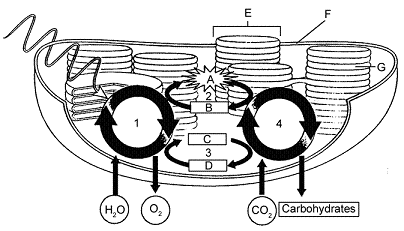If life exists on Mars, it is predicted that organisms would live underground and be anaerobic. Why?
What will be an ideal response?
Mars has no ozone layer, so ultraviolet radiation would be too damaging for organisms to live on the planet's surface. Also, as a result of its smaller size, Mars has less gravity than Earth and is less able to keep atmospheric gases from drifting off into space. The relatively small amount of atmosphere that remains consists mainly of carbon dioxide, some nitrogen, and only traces of oxygen. Therefore, organisms would have to be anaerobic.
You might also like to view...
What did Richard Axel and Linda Buck discover about the way in which we are able to perceive many different types of odors?
A. Many different types of odors bind to just a few different types of receptor molecules. B. Vertebrate animals make a large number of distinct types of receptor proteins, each of which binds a particular odorant molecule or small group of such molecules. C. Odors are distinguished by the way in which they bind both olfactory and taste receptors—it is the overall "picture" generated this way that we perceive. D. None of these choices are correct.
Which of the following lack chlorophyll and are totally dependent on the host plant for water and nutrients?
A. hemiparasites B. holoparasites C. all plant parasites D. root parasites E. hemiparasites and root parasites
A soil that is 10% silt, 80% sand, and 10% clay would be considered
A) clay loam. B) sandy clay. C) slit loam. D) loamy sand.
Carbon is fixed in which part of the accompanying diagram?

a. A
b. G
c. 4
d. 2
e. 1